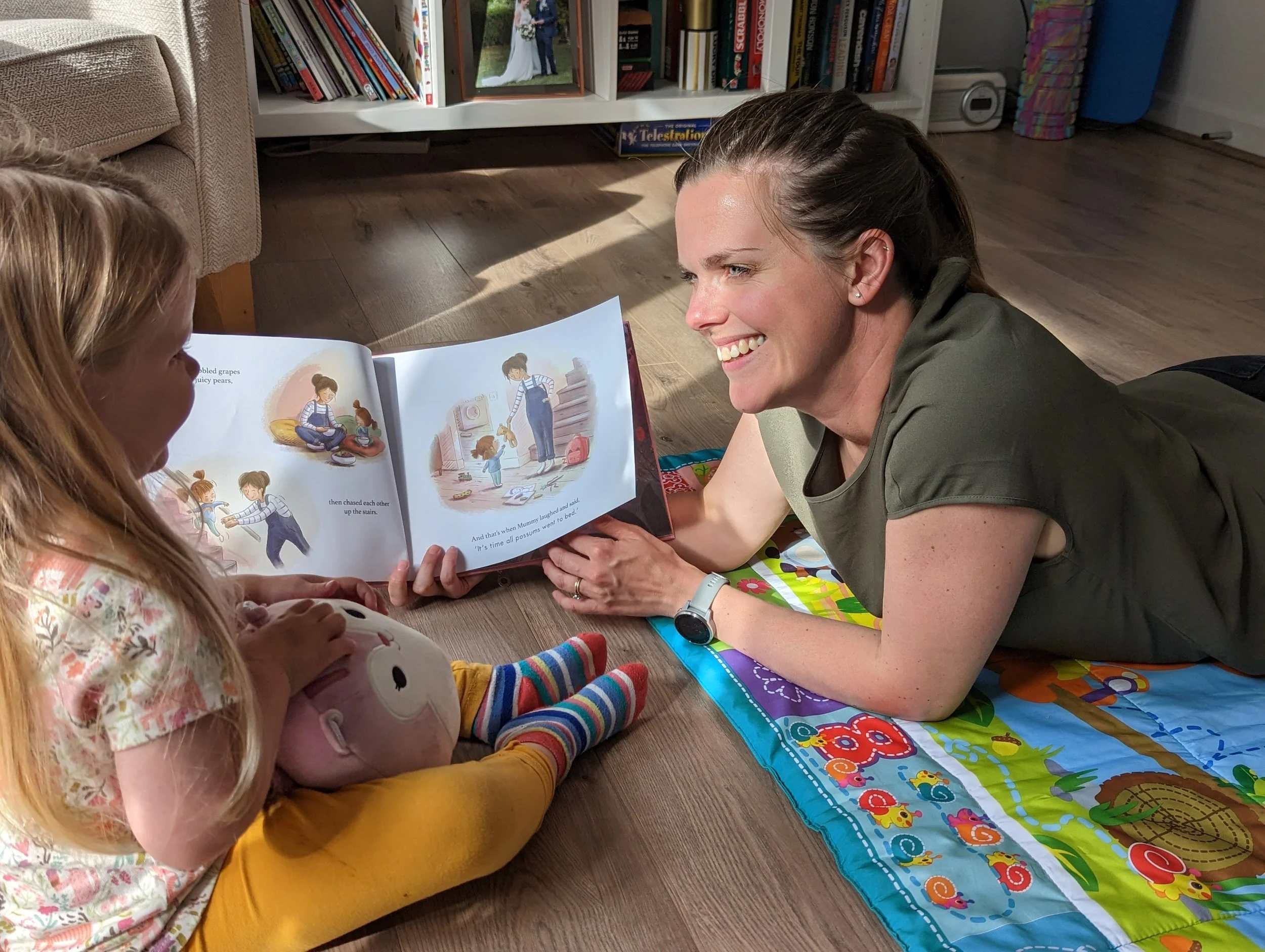Written by Claire Burgess, Family Consultant. If you’ve noticed your child talking to an invisible friend or referring to someone who isn’t physically present, you might be wondering if it’s something to be concerned about. The good news is that imaginary friends are a perfectly normal and common part of childhood development.
Read MoreCategories
ALL | Babies | Behaviour | Bereavement | Co-Parenting | Food and weaning | Getting to know | Grandparents | Health | Lockdown | Nursery | Other | Play | Routines | School | Separation anxiety | Siblings | Sleep | Teething | Toilet Training | Transitions | Travel | Tweens and Teens | Twins
You can also check out all of our practical videos on our YouTube Channel here - these include nappy changing, making up a bottle, topping and tailing and so much more!
Written by Claire Burgess, Family Consultant. Running off is a natural part of early childhood development. It’s often about the sense of freedom and excitement that children get from moving independently and they may not yet have a full grasp of the dangers involved, like cars or busy streets. Running feels like a game, and they may find it fun to get ahead of you or explore areas you haven't yet reached. Sometimes, it’s simply about testing boundaries, pushing limits to see how far they can go before you stop them.
Read MoreWritten by Claire Burgess, Family Consultant. This is a question we get asked regularly! Do you feel like you're talking, asking, requesting, or even pleading with your little one, only to get no response or action? It can be exhausting, draining, and incredibly frustrating when all you hear is your own voice All. Day. Long!!
Read MoreWritten by Claire Burgess, Family Consultant. As parents and carers we can often see our little ones have a meltdown after a day at nursery or school. This is known as ‘after-school restraint collapse’ and happens when children, who have been holding it together all day, finally let out all their pent-up emotions when they return to their safe space at home or when they see you and feel safe to relax and show how they are feeling.
Read MoreWritten by Claire Burgess, Family Consultant. Navigating life with a toddler after a C-section can be challenging, especially when it comes to helping them understand your recovery. Here are some practical tips to make the transition smoother for both you and your little one.
Read MoreWritten by Claire Burgess, Family Consultant. When your child uses a swear word for the first time, it can trigger a range of reactions. Some parents may find it funny, while others might feel shock, disappointment, or embarrassment (or a mixture of all of these feelings). However, it's essential to understand that children often experiment with language as they learn and grow.
Read MoreWritten by Kate Burgess, Speech and Language Therapist. Language and Communication development in children is a phenomenal process. Babies go from having an instinctive, reactive cry to being able to use hundreds of words in short phrases by the time they are three years old. And it continues to grow and develop well into primary school and beyond.
For some children, this process happens smoothly without parents and carers feeling like they’re doing anything ‘extra’ or ‘special’. Just chatting along to your child, reading books, singing songs and hey presto! Language is developing.
Read MoreWritten by Claire Burgess, Family Consultant. Are you finding that you are asking your child questions or giving instructions to only be told “no”? Does this make you feel like everything is very hard work? When your child finds their voice and the word ‘no’, this can often create times of frustration and annoyance both from the child and from the adult receiving this response!
‘No’ is a very powerful word - it can often really stop us in our tracks. Our children see this and then use the word in order to fully understand its meaning. Our children very quickly realise the power that the word ‘no’ has and use this to assert themselves and their thoughts and feelings.
Read MoreWritten by Katie Crouch, Senior Lecturer, Researcher and Consultant in the Early Years. Due to Covid and subsequent home-schooling, we have all become aware of the pressures faced by families when trying to support learning in the home. Now that schooling and home learning are becoming separate entities again, we look at how we can build healthy routines and home learning habits.
How can we as adults help our children to develop a love of learning outside of the school environment? In fact, the learning which takes place outside of the school can often hold a deeper sense of meaning and understanding for many of our children and this leads to question why this could be the case?
In my experience, it is down to just a couple of simple factors;
Learning away from school can have fewer boundaries, such as time constraints.
Children are also more likely to feel emotionally safer with their significant adults and fewer opportunities for self-comparison with peers.
In this blog I will look at how we can maximise children’s learning potential within these circumstances.
Read More









